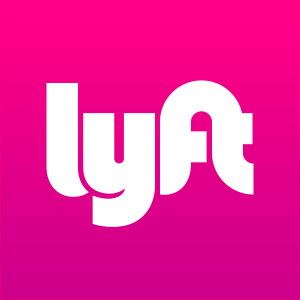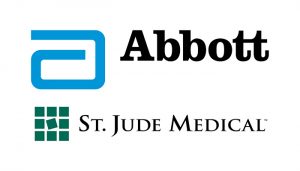 Top Class Action Lawsuits
Top Class Action Lawsuits
Not wanting to hear from Lyft? Lyft got hit with a Telephone Consumer Protection Act (TCPA) class action lawsuit this week, alleging that ride sharing app, and employment social network Jobcase engaged in sending unsolicited text messages to prospective drivers.
According the complaint, filed by Mary Fente, Lyft and Jobcase, which also runs a subsidiary company that posts jobs called jobhat, sent spam text messages to Fente’s phone using an automated dialing system, in violation of the TCPA. The purpose of the text messages was to persuade Fente to become a driver for Lyft, she claims.
According to Fente, she had accessed Lyft’s website through an ad posted on Jobhat, previously.
The Lyft complaint cites the texts as reading “Maria, START NOW: Drive with Lyft, up to $1500/wk,” and the message contained a link to Lyft’s website. Fente said she did not consent to receiving text messages.
The proposed number of plaintiffs could be “in the several thousands, if not more,” and seeks class certification for any potential Lyft driver who received an automated text going back to August 10, 2013. Further, Fente seeks to enjoin Jobcase and Lyft from sending the texts, and asks a judge to triple the $1,500 statutory damages under the TCPA for each message.
In the proposed action, Fente states that the spam texts caused her “actual harm, including invasion of her privacy, aggravation, annoyance, intrusion on seclusion, trespass, and conversion.” Additionally, the unsolicited texts caused her to check her phone at work, which meant she had to stop what she was doing to check her phone.
Lyft has an agreement with Jobcase to pay the company a fee based on how many prospective drivers Jobcase steers to Lyft’s website, the complaint states.
The case is Fente et al. v. Jobcase et al., case number 1:17-cv-24082, in the U.S. District Court for the Southern District of Florida.
How do you define unjust enrichment? A national consumer banking class action lawsuit filed against PNC Bank is alleging a version of it that goes like this: according to the complaint, customers with delinquent loans are being charged fees by PNC’s mortgage servicing unit, repeatedly, for “unreasonable and inappropriate” drive-by property inspections. Drive by inspections? Read on.
Filed in federal court by Rosemary Marsh of Bremerton, WA, the complaint asserts that she was charged for six drive by inspections, at $12 each, over a span of 17 months, after she fell behind on her mortgage in 2013.
“The inspector drives by the property ostensibly to assess whether the property is occupied, being maintained, and has not been damaged,” the complaint states.
According to the PNC mortgage property inspection lawsuit, the bank automatically orders the property inspections at regular intervals without regard to whether they are needed or reasonable.“Property inspections are even performed when PNC is aware that a property is not vacant,” the plaintiff asserts. By way of example, in the case of a borrower who only misses one month’s payment but continues to make regular monthly payments, “PNC’s system will continue to generate work orders for property inspections until the initial default is cured,” according to the complaint. “These computer-generated inspections are unnecessary and unreasonable, confer no benefit to the lender and serve no purpose other than to generate revenue for PNC,” the lawsuit states.
Marsh alleges that even after verifying she was occupying the home, and after she had resumed making monthly payments on her loan, PNC ordered and assessed inspection fees.
The lawsuit claims unjust enrichment, and violations of the Washington State consumer protection laws.
Marsh contends that Class Members have suffered injury-in-fact and/or actual damage, and as a result, Plaintiff and the Class Members are entitled to a disgorgement of all amounts by which the Defendant has been unjustly enriched, as well as their actual damages, punitive damages, among other relief.
Marsh brings this action seeking injunctive relief and damages on behalf of herself and the hundreds of thousands or millions of borrowers who have been victimized by PNC’s uniform practice of charging for unreasonable and inappropriate property inspection fees. The lawsuit seeks certification of a national class and a Washington class.
Top Settlements
Chase to settle overtime lawsuit… Bet these plaintiffs are celebrating. JP Morgan Chase & Co has agreed to pony up no less than $16.7 million as settlement of an unpaid overtime class action lawsuit.
The settlement address claims made by assistant branch managers that Chase misclassified them as exempt from overtime, in violation of federal and state employment laws.
There are four classes of plaintiffs, one which brings claims under the Fair Labor Standards Act (FLSA), and three putative classes, which claim violations of New York, Connecticut and Illinois laws respectively. Under the proposed deal, plaintiffs should receive an average of more than $3,000 per class member, in respect of unpaid overtime dating back to 2012. The deal covers approximately 5,400 employees.
The class action was filed in March 2014 and certified in September 2016. The putative classes filed a lawsuit in April 2015 after attempting to negotiate directly with the bank, according to the agreement. The two lawsuits were eventually consolidated by the court, following certification of the FLSA class.
“Given all the risks plaintiffs faced (obtaining class certification, maintaining collective action certification, defeating the class and collective action arbitration waivers, winning liability, proving damages, winning the appeal, etc.) and recognizing that plaintiffs did not work overtime in multiple weeks per year when they took time off or when there were bank holidays, an average gross settlement of about $3,086 is reasonable in this highly-contested matter,” the proposed Chase settlement agreement states.
The cases are Taylor et al. v. JPMorgan Chase & Co. et al., case number 14-cv-01718, and Varghese v. JPMorgan Chase & Co. et al., case number 1:15-cv-03023, in the U.S. District Court for the Southern District of New York.
Ok – That’s a wrap for this week. See you at the bar!

 Top Class Action Lawsuits
Top Class Action Lawsuits  Top Class Action Lawsuits
Top Class Action Lawsuits Top Class Action Lawsuits
Top Class Action Lawsuits Top Class Action Lawsuits
Top Class Action Lawsuits Top Class Action Lawsuits
Top Class Action Lawsuits  Top Class Action Lawsuits
Top Class Action Lawsuits  Top Class Action Lawsuits
Top Class Action Lawsuits  Top Class Action Lawsuits
Top Class Action Lawsuits  Top Class Action Lawsuits
Top Class Action Lawsuits